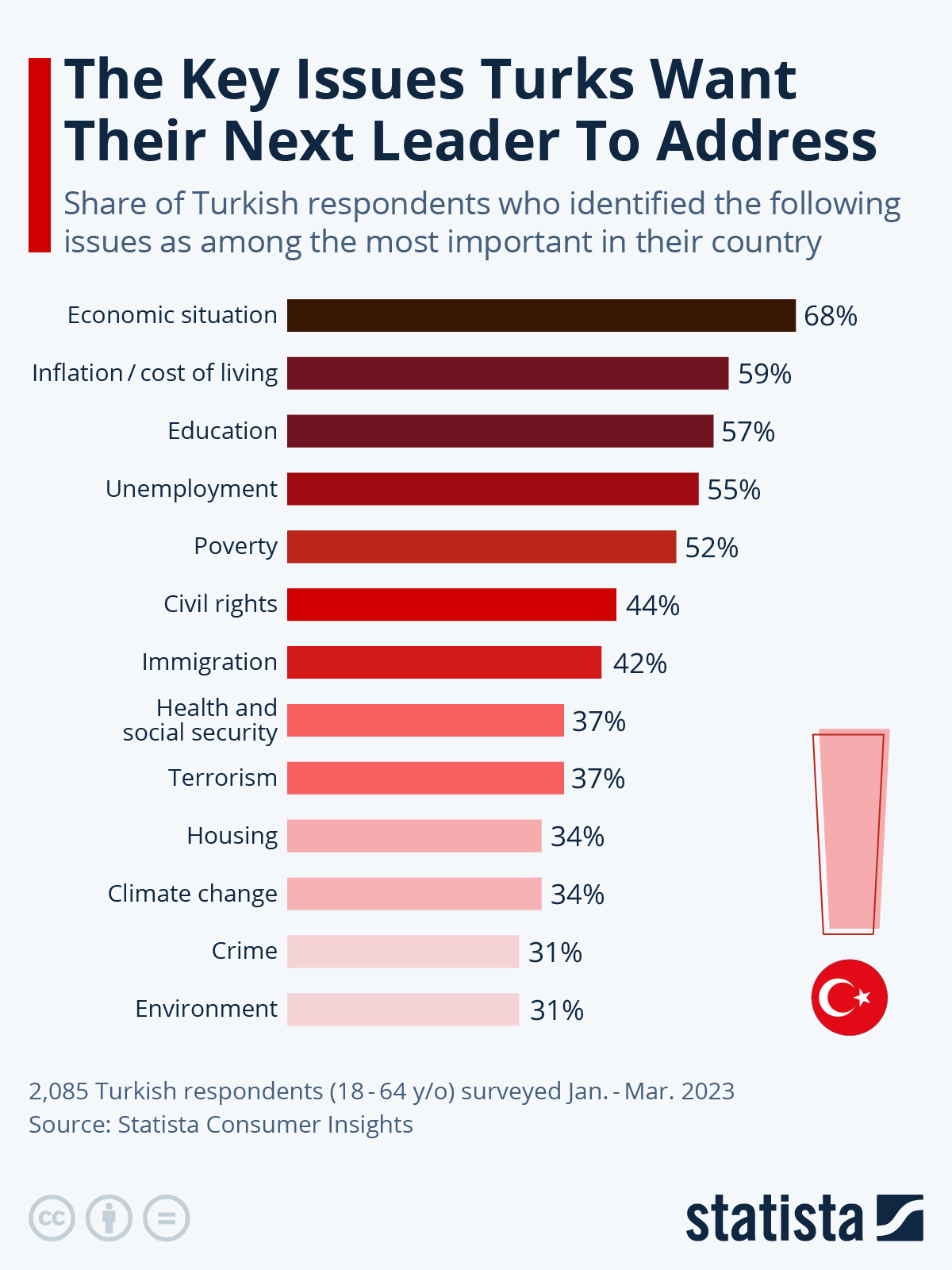After an extremely close presidential election in Turkey on Sunday, it looks as if none of the candidates will secure the minimum 50 percent of votes needed for an outright win, with incumbent president Recep Tayyip Erdoğan having so far received 49.34 percent of the counted ballots, opposition candidate Kemal Kılıçdaroğlu 44.99 percent and Sinan Ogan 5.28 percent. Erdoğan and Kılıçdaroğlu will now most likely face one another in a final runoff on May 28.
The next president will have a lot on their hands. Turkey is currently deep in an economic crisis, with high inflation rates and a collapsing currency. At the same time, the nation is still reeling from a devastating series of earthquakes that killed more than 50,000 people in the country. In terms of the state of civil rights, Turkey is one of the countries with the highest incarceration rates of the Council of Europe group, while it also ranks high among countries where the most journalists are imprisoned.
The following chart uses data from an online survey by Statista Consumer Insights of more than 2,000 Turkish adults to show which issues Turkish residents say most need to be addressed right now. Of the 19 options polled, issues related to the economy were the most widely cited concerns, with 68 percent of adults selecting the economic situation in general, while 65 percent selected the issue of rising prices and inflation, 55 percent stated the issue of unemployment and 52 percent said poverty. Multiple options could be selected.
However, civil rights too appeared fairly high on the chart, mentioned by 44 percent of respondents, followed by immigration with 42 percent. According to media reports, anti-refugee sentiments and xenophobia have been rising in Turkey recently, with the February earthquakes exacerbating tensions.
Turkey has played an important role in opening its borders to Syrians fleeing war in their home country. According to the UNHCR, Turkey currently hosts some 3.6 million registered Syrian refugees - 3.6 million who will be watching these elections carefully, as the outcome will determine the country’s immigration policies and security of their futures.
Other issues polled in the survey include the question of unifying the country (29 percent) as well as food and water security (29 percent), as well as the issue of defense and foreign affairs (21 percent) and religious conflicts (19 percent) and government debt (19 percent).





















